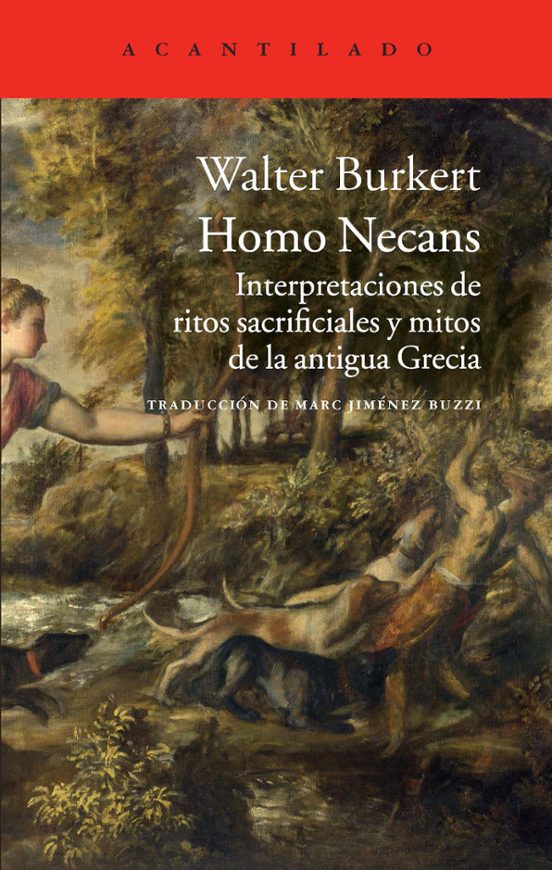
The book was the product of the Sather Lectures which he was invited to deliver at the University of California, and in the same year as those lectures there appeared Griechische Religion der archaischen und klassischen Epoche, in which his erudition, clarity of exposition and sense of proportion are all conspicuous it immediately became the standard work on the subject. His arguments in that book were an important prelude to Structure and History in Greek Mythology and Ritual, which includes a penetrating critique of schematic and simplistic approaches to mythology, establishes the relation between myth and ritual, and insists throughout on the historical dimension. Homo necans is a book on Ancient Greek religion and mythology by Walter books core thesis is that when paleolithic man became a hunter, in spite of the generally omnivore orientation of the great apes, lack of a predator instinct was made up for by turning patterns of intra-species aggression against the prey. In Homo Necans, a study of the history of sacrifice, and an attempt to explain the significance of ritualized collective bloodshed, he went far beyond the conventionally accepted limits of the ancient world, drew upon the evidence afforded by neolithic and palaeolithic cultures, and exploited to good effect some ideas suggested by observation of the behaviour of social mammals in general. Studien zu Pythagoras, Philolaos und Platon, he disentangled the mass of tradition which has accumulated around the name of Pythagoras, distinguishing between the dogmatic and aphoristic doctrines for which Pythagoras claimed supernatural authority and the mathematical and scientific investigations of the later Pythagoreans. In his first major work, Weisheit und Wissenschaft. Professor Burkert has demonstrated, in a series of books of enduring importance, his command of the relevant learning and techniques and also his originality and his readiness to pursue trains of thought suggested by other disciplines.



More controversially, he believed Greek religious practices to have been decisively shaped by homo sapiens’ long prehistory as a hunter, and even sought analogies in animal behaviour.It has long been recognised that investigation of Greek religion demands not only a mastery of all aspects of Classical studies, including literature, archaeology, art and philosophy, but also an understanding of anthropology and a sound acquaintance with the religions of Egypt and the Near East. He always sought out interconnections with the thought and experience of other ancient cultures (an early article was entitled “Iranian Elements in Anaximander”). His love and admiration for Greek literature and philosophy were manifest, but his approach to the Greek world was resolutely non-classicising and non-idealising. He combined awesome learning, brilliant expository skills in both German and English (the award in 2003 of the Sigmund Freud prize for Scientific Prose was well deserved), and a passionate and wide-ranging intellectual curiosity.

Walter Burkert was a giant among scholars of ancient Greek culture, one whose work had resonance well beyond the world of classical scholarship.


 0 kommentar(er)
0 kommentar(er)
